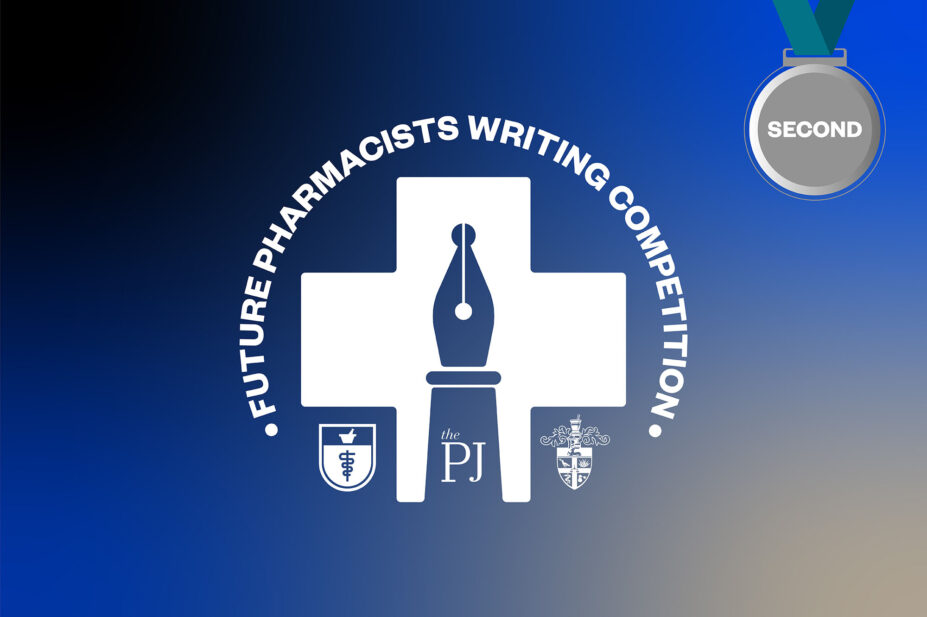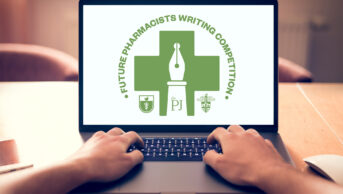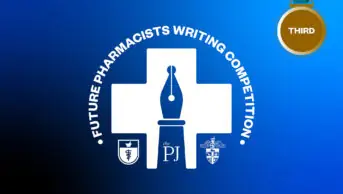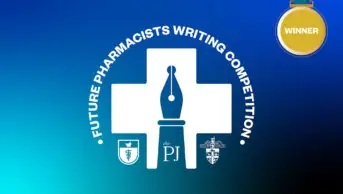
The Pharmaceutical Journal
What prepares a pharmacist for the moment a patient deteriorates unexpectedly, a parent panics or a colleague makes a mistake? The reality of NHS practice is fast, uncertain and emotionally charged. Despite progress in curriculum design and the implementation of the GPhC standards1, new pharmacy graduates often feel underprepared for the practical, social and emotional demands of NHS practice. The transition from university to the realities of front-line healthcare can be daunting, with many students identifying confidence, communication, decision-making and problem solving as areas of difficulty2. This gap in preparation puts the readiness and resilience of new pharmacy graduates at risk, especially at a time when the NHS can least afford delays in capability.
Evidence review
Numerous studies in pharmacy education highlight the importance of experiential learning, peer teaching and simulation in improving workplace readiness. A teaching programme developed for advanced general practice clinical pharmacists in Scotland resulted in increased confidence and competence in clinical decision-making, leadership and communication, which are all skills essential for newly qualified pharmacists in a multi-disciplinary NHS setting3. Participants reported that engaging with structured problem-based clinical cases helped them link theory to real-life scenarios, indicating the need for targeted learning early in pharmacy education, not just post-registration.
Experiential placements within specialist NHS settings have demonstrated benefits
Similarly, the University of Portsmouth used human patient simulators to teach critical care scenarios, not only improving students’ knowledge retention immediately but also sustaining these gains three to four weeks after the session4. The interactive simulation allowed students to actively engage with high-pressure scenarios, such as managing acutely ill patients, that are often difficult to replicate in routine placements.
Beyond simulation, experiential placements within specialist NHS settings have also demonstrated benefits. A study by the University of Hertfordshire assessed the impact of placements in mental health and learning disability services, finding notable improvements in students’ confidence, empathy and communication with vulnerable populations5. The results emphasise the importance of ensuring pharmacy undergraduates are exposed to diverse care environments which are often underrepresented in traditional placements.
Liverpool John Moores University collaborated with local NHS trusts to successfully deliver hospital-based experiential placements despite financial and resource limitations6. This shows that collaboration with hospitals is not only achievable but sustainable when existing relationships and shared responsibilities between trusts and universities are utilised.
However, a national survey by Willis et al. revealed inconsistencies in experiential learning with ranging placement hours, varying tutor preparation and learning outcomes often lacking alignment with the GPhC standards1,7. These differences make it harder to guarantee all students across the UK are equally prepared for practice and highlight a need for more coordinated national frameworks to ensure consistency in experiential training.
Clinical educators are increasingly supportive of using competency-based assessments to provide clearer expectations, consistent feedback and help students take ownership of their development8. Unlike traditional written exams, competency frameworks allow students to demonstrate growth in leadership, communication and professionalism through observation and feedback. These are all competencies that can be difficult to assess in the classroom but are essential in NHS roles.
Analysis
The gap between university education and NHS practice readiness can be attributed to several factors. First, there is considerable variation in the structure, duration and quality of experiential placements across UK universities. The national survey by Willis et al. found disparities in placement hours, tutor training and alignment with GPhC standards, demonstrating a need for more standardisation1,7.
Second, essential workplace skills such as leadership, communication and clinical decision-making are not consistently developed within undergraduate programmes. While initiatives like Scotland’s advanced general practice teaching programme showed improvement in these areas, such opportunities are typically available only post-registration, missing the chance to include them earlier3.
Simulation-based learning offers a promising approach to bridge these gaps, particularly for preparing students for high-pressure clinical scenarios. Evidence from the University of Portsmouth showed improved knowledge retention and engagement through human patient simulation4. However, not all institutions have access to similar facilities, contributing to inequity in preparedness.
Additionally, placement experiences in underrepresented settings like mental health and learning disability services have been shown to enhance empathy and communication4, yet opportunities to engage with these areas remain limited. Even where placements do exist, logistical and financial challenges persist, though successful collaboration models (e.g., Liverpool John Moores University) demonstrate that sustainable hospital-based learning is achievable with strong NHS-university partnerships6.
Lastly, competency-based assessments have emerged as a preferred method among educators for measuring student development in professionalism and communication skills, which are not easily assessed through exams8. Perhaps incorporating these into the curriculum may help clarify expectations and support a more consistent transition into NHS practice.
Proposals for change
To bridge this gap, I propose a national model of mandatory monthly ‘Workplace skills sessions’ during the foundation training year and final year of the MPharm programme. Each session is led by foundation trainees and involves small groups of local fourth year MPharm students. The format includes:
- ‘Pressure pods’: simulated NHS scenarios that test time management, communication and problem-solving.;
- History-taking and communication clinics with feedback from real or simulated patients;
- ‘What I wish I knew’ sessions with trainees sharing lessons from practice;
- Team-based challenges to work through everyday pharmacy cases;
- Reflective discussions tied to GPhC outcomes1.
These sessions provide MPharm students with structured and supported exposure to NHS practice and gives trainees formal opportunities to develop their leadership, teaching and reflective skills. Not only do the trainees develop competencies from the GPhC framework, they generate evidence needed for their portfolios1.
Counter arguments
Some may argue that this places additional burden on foundation trainees or that peer-led teaching could reduce quality. However, the sessions are short (monthly), align directly with the foundation year competencies and use a simple pre-made structure to ensure consistency and feasibility. This model reduces reliance on additional academic staff and makes use of a valuable but often overlooked teaching resource — trainees who are only slightly further ahead in their journey and whose recent experiences resonate strongly with current students.
Call to action
I propose piloting this model in two regions, where universities and training providers can work together to run sessions supported by foundation trainees. In the initial phase, involvement would be voluntary and offered to trainees who are interested in teaching, building their portfolios or gaining experience towards credentialing. Given the demands of the foundation year, the programme should be flexible and low pressure. A simple evaluation which tracks student engagement, confidence and alignment to the GPhC outcomes would help refine the model before considering wider rollout1. If successful, this could be scaled nationally with minimal additional cost.
Conclusion
‘Workplace skills sessions’ offer a simple, scalable intervention to better prepare future pharmacists for NHS practice. These sessions tackle the gaps in readiness, support the development of effective communication and teamwork and strengthen links between universities and employers. By learning alongside foundation trainees, pharmacy students gain key insights into clinical practice and grow in confidence. It’s a low-cost, practical approach to shaping a more confident and connected workforce ready to meet the evolving demands of the NHS.
- 1.Interim learning outcomes for the foundation training year . General Pharmaceutical Council. March 2021. Accessed September 2025. https://assets.pharmacyregulation.org/files/document/interim-learning-outcomes-foundation-training-year-march-2021.pdf
- 2.Allinson MD, Black PE, White SJ. Professional Dilemmas Experienced by Pharmacy Graduates in the United Kingdom When Transitioning to Practice. American Journal of Pharmaceutical Education. 2022;86(5):8643. doi:10.5688/ajpe8643
- 3.Rushworth GF, Innes C, Macdonald A, et al. Development of innovative simulation teaching for advanced general practice clinical pharmacists. Int J Clin Pharm. 2021;43(4):817-824. doi:10.1007/s11096-021-01305-3
- 4.Reape A, Lips-Nassif C, Bailey L, et al. The use of human patient simulators for teaching UK pharmacy students about critical care. Pharm Ed. 2011;11(1):1-7. https://pharmacyeducation.fip.org/pharmacyeducation/article/view/340
- 5.An evaluation of pharmacy undergraduate clinical placements in a UK mental health and learning disabilities trust . Pharmaceutical Journal. Published online 2023. doi:10.1211/pj.2023.1.184027
- 6.Hindley B, Wright S, Peasley M. Developing a feasible model for delivering quality hospital-based experiential learning for pharmacy undergraduate students funded by the healthcare education and training tariff. Pharm Educ. 2023;23(1):205-207. doi:10.46542/pe.2023.231.205207
- 7.Davey A, Marriott J, Scott M. A survey of experiential learning in UK MPharm programmes. Pharm Ed. 2019;19(1):61-69.
- 8.Jacob SA, Power A, Portlock J, Jebara T, Cunningham S, Boyter AC. Competency-Based Assessment in Experiential Learning in Undergraduate Pharmacy Programmes: Qualitative Exploration of Facilitators’ Views and Needs (ACTp Study). Pharmacy. 2022;10(4):90. doi:10.3390/pharmacy10040090


